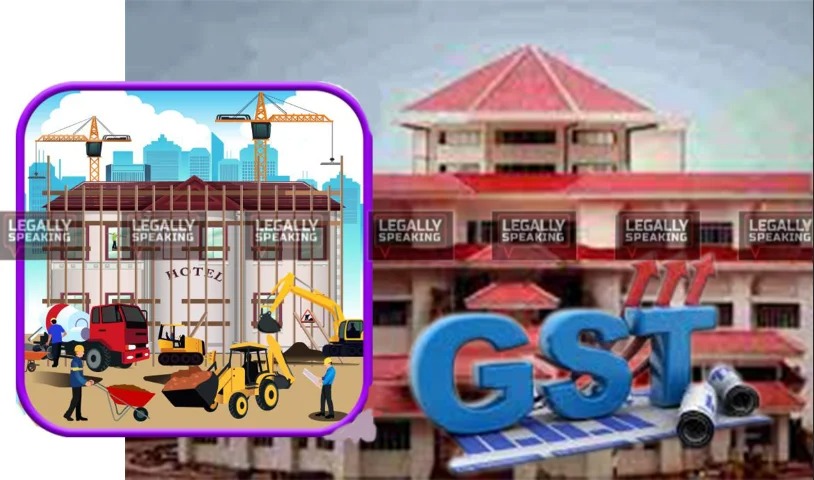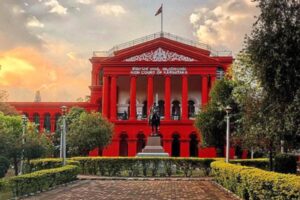
The Tripura High Court recently held that the taxpayer, who is involved in the construction of a hotel building and providing taxable work contract services, is eligible to claim input tax credit for the goods and services utilized in carrying out the work contract services.
According to a division bench of Acting Chief Justice Aparesh Kumar Singh and Justice Arindam Lodh, the taxpayer has met all the requirements for work contracts. They are engaged in providing work contract services under an agreement for constructing a hotel, which involves the transfer of goods as part of the contract execution. The Hotel Polo Pvt. Ltd., being an immovable property, receives the work contract services from the taxpayer. It is important to note that the taxpayer provides these services to the hotel owner and not for their own benefit.
The petitioner (M/S SR Constructions), a construction company, entered into a works contract agreement with M/s Hotel Polo Pvt. Ltd. to construct a hotel in Agartala. During the construction process, the petitioner procured materials and engaged subcontractors. To comply with the inward output service requirements of the work contract, the petitioner paid GST for the inward supply of various goods and services. They filed returns and made tax payments accordingly. As a result, the petitioner was eligible for input tax credit, and the corresponding amounts were remitted.
However, the respondents raised a demand against the petitioner under Section 74(1) of the CGST Act, claiming that the input tax credit availed for the works contract service related to the construction of an immovable property violated Section 17(5) of the CGST Act. The petitioner argues that this demand is incorrect and that the respondents were not authorized to collect taxes under the Input Tax Credit, as the credit should be granted under the Income Tax Act.
A show cause notice was issued to the petitioner, who provided an explanation. Subsequently, orders were passed. Dissatisfied with the outcome, the petitioner filed an appeal before the respondent, and the appellate authority upheld the decision made by the adjudicating authority on October 13, 2020.
The assessee cannot have a demand notice confirmed against them without clear charges being specified and the exact statutory provisions that justify the proposed demand being notified. In this case, the respondent denied the input tax credit (ITC) amounting to Rs. 1,42,33,194, which was availed by the assessee for works contract services related to the construction of an immovable property, citing a violation of Section 17(5)(c) of the CGST Act.
However, the court determined that the petitioner did not meet the definition outlined in Section 17(5)(c) of the CGST Act, 2017. As a result, the demand raised on September 30, 2019, and the penalty imposed under Section 74(1) of the CGST Act, 2017 are considered beyond the scope of legal authority and contrary to the law. Consequently, the order issued on February 1, 2022, by the respondent, the appellate authority, which upheld the decision of the adjudicating authority, is subject to being overturned and invalidated.




